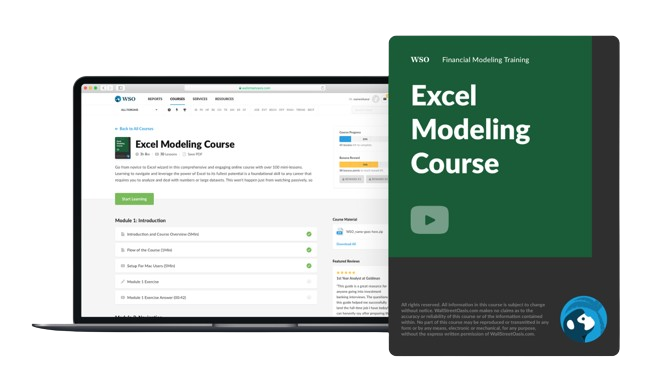Premium Bond
Bonds that are traded at a value greater than the par value of the bonds in the securities market for the business.
What Is a Premium Bond?
The British government has issued lottery bonds since 1956 under the name "Premium Bonds." The National Savings and Investments government agency is currently responsible for issuing it.
The idea behind these bonds is that a lottery is used to distribute the interest on the bonds, not the stake, as it would be in a typical lottery. The government guarantees to buy the bonds back at their original price upon request and enter them into a monthly prize drawing.
Since the late 18th century, this phrase has been used to refer to a bond that does not pay interest but is eligible for a lottery.
Generally, these bonds are traded at a value above the face value of the bond. In addition, the bond is usually traded at a premium because the interest rates are higher than the market rates.
An example of this can be when Company ABC Ltd. holds bonds with a face value of $2,000 but trades the bonds for $2,100, where the extra $100 is referred to as the premium on the bond, which increases the face value amount to the value at which it is traded.
In other words, the premium can also be defined as the difference between the value at which the bonds are traded and the face value of the bonds.
After being held for a complete reward cycle, acquired bonds are eligible for their first prize draw. Bonds purchased in March will therefore be retained until the May prize drawing.
This poses a risk that taking a loan against your bonds may result in you missing a profitable month.
Key takeaways
- Premium Bonds are those trading at a value greater than the par value of the bonds in the securities market for the business. The main reason for the existence of these bonds is to control inflation and encourage people to start saving.
- Anyone aged 16 or above can buy these bonds.
- Till the time you've not cashed your bonds, they remain valid.
- These bonds have the ability to provide higher cash flows to the business leading to higher attractiveness towards large companies.
- These bonds are among the safest investments for individuals and businesses.
- There is no risk to the company's capital, and it's a pretty secure way of investing money without losing a penny.
How Do Premium Bonds Work?
We must first look at the steps to understand how these bonds work in the economy.
Some of the steps are:
- You must invest a minimum of £25.
- Bond purchases may continue until a total of £50,000 in bonds is held.
- You receive a special bond number for every £1 you invest. Consequently, if you save £100, you will receive 100 bond numbers (each with a chance to win a prize).
- Bonds that have been held for a full month are eligible for a monthly draw where you can win cash rewards.
- You can purchase them for yourself, your child, your grandchild, or your great-grandchild. To acquire these bonds for yourself, you must be at least 16 years old.
Bonds are not for the people who want a regular income, guaranteed returns, and no fear of the impact of inflation on their savings.
Unless you have chosen to cash in after the next draw, it could take up to three banking days for the money to arrive in your account, according to NS&I.
here needs to be more clarity on which is better between premium bonds and savings accounts. That depends on how lucky you are.
Note
With savings accounts, you can bank on getting the claimed interest rate, but with these bonds, there is no assurance that you will win anything.
If a person had these bonds when they passed away, those would be a part of their Estate and need to be handled as part of the Probate procedure.
Typically, the coupon rate on a premium bond will be higher than the current market interest rate. Therefore, the effective yield on this bond may not be favorable for the investor due to the additional premium cost over the bond's face value.
Savings are always tax-free, a big advantage for bonds because the higher rate and even basic rate payers can invest much money without paying taxes. Hence, you do not need to declare the premium bonds on your tax returns.
Premium Bond Advantages And Disadvantages
These bonds have both advantages and disadvantages in the finance sector, which must be kept in mind while investing in the former.
Some of the advantages of these bonds are:
- The interest rates are higher than the market rates.
- Often issued by reputed and big companies with good credit ratings.
- They generally offer 100% capital security which the HM Treasury hence backs up. This states that the capital invested is safe, and there is no risk to the owners' capital.
- This is considered favorable for higher-rate taxpayers.
Some of the disadvantages of these bonds are:
- The results of assuming a position opposite to the opening position, which is a higher bond price, are higher coupon rates.
- There is a risk associated with the payment for the risk by the bondholders, generally in this situation of overvaluation of bonds.
- A rise in the market rates leads to the risk of overpaying by the bondholders.
- It also involves some initial delays in the process of trading in the securities markets.
- There is no regular income guaranteed.
Are Premium Bonds a Good Investment?
The main reason the general public is interested in purchasing these bonds is the higher interest rate than the overall market interest rates and the risk-free capital investment.
Millions of us own almost £116 billion of the lottery-style savings product known as Premium Bonds, giving them a particular place in the hearts of the country.
You shouldn't invest your life's savings in these bonds since you won't make enough money to stay up with inflation (unless you are lucky and win the jackpot).
The fact that these bond awards are tax-free may be another benefit for some.
When you win with Premium Bonds, a compound interest effect also occurs, increasing the probability of winning.
These bonds are worth investing in when there are a lot of savings, and they pay taxes on saving interest.
These bonds work in a similar way to a lottery. With a minimum investment of £25 required, each £1 invested provides one entry into the monthly premium bond prize draw. Your chances of winning rise with each entry you submit, up to a total investment of £50,000.
The UK government is the sole issuer of premium bonds, which can be bought online, over the phone, or by completing a paper application and mailing it in the mail. These bonds are drawn at the beginning of every month.
Giving premium bonds as gifts is possible, and they make the ideal present. You can purchase them for this purpose online or via mail.
One of the least risky ways to save money is through premium bonds. Since HM Treasury underwrites or backs bonds, you shouldn't be concerned about losing your money.
Note
You could earn more money by investing in a company or commodity through stocks and shares, but you also risk losing money. With these bonds, you can never lose money.
NS&I and Premium Bonds
The probabilities for the Premium Bonds prize money increased from 24,500 to 1 to 24,000 to 1, according to NS&I's announcement on September 27, 2022. The adjustments took effect with the October 2022 prize drawing.
NS&I increased the bond prize fund rate from 1.00% to 1.40% in June 2022. Whether current interest rates are greater or lower than the bond's coupon rate, the bond market is efficient and reflects this in the bond's price.
Investors should be aware of the factors influencing a bond's price, such as market interest rates or the credit standing of the underlying corporation. In other words, if the premium is so big compared to the market, it might be worth the increased yield.
However, investors risk overpaying for the additional premium if they purchase a premium bond with a premium, and market rates considerably increase.
It has a coupon rate greater than the going rate for the maturity and credit grade of the bond. In contrast, a discount bond has a coupon rate lower than the current interest rate for bonds of that maturity and credit rating.
NS&I may keep bonds for 12 months following a death. This is because they are still qualified to win cash during this time.
The estate executor or a designated beneficiary may contact NS&I to claim the prizes and cash out the bonds once 12 months have passed. It typically takes up to eight working days for the money from the bonds to arrive in your bank account, according to NS&I.
However, NS&I has stated that it is busier than normal at the time of writing, so sending a withdrawal form could delay processing your money by up to two weeks.





or Want to Sign up with your social account?